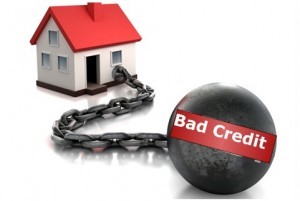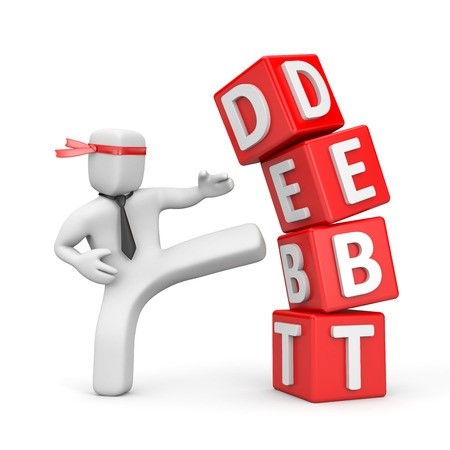Don’t Let Bad Credit Keep You From Being a Home Owner

Perhaps you are ready to buy a home, but you think you can’t because of a low score on your credit report. Bad credit can present challenges when purchasing a home, but it doesn’t have to keep you from moving forward with your dream of becoming a home owner. With interest rates still low, now is a great time to buy, so don’t let bad credit hold you back! Here are some tips for how to buy a home even when you have bad credit:
- Get your credit score. Take a deep breath and do that search. There are several places you can get your credit score for free. Just keep in mind that you will have three credit scores - one each from Equifax, Experian, and TransUnion. These are the three major credit reporting agencies, so it’s a good idea to get scores form all of them. Get Your Credit Scores
- Make sure your credit report is accurate and up to date. Your credit report is like a history of how you have handled borrowed money. There may be errors in it and if so, that could damage your credit score. You can get a free credit report from each of the three major credit reporting companies annually. When you get the reports, look over them carefully to make sure all the information is correct. If you find any errors, you can dispute them with the reporting companies. How to Dispute Credit Report Information
- Prepare yourself to pay a higher interest rate. Qualifying for a mortgage with a lower credit score is possible if you are willing to pay a higher interest rate. That’s why it’s a good time to buy when rates are relatively low to begin with. Lenders charge more to protect themselves should the buyer make late payments or fail to make payments altogether. Unfortunately, bad credit means that you likely have a history of doing just that. While a higher interest rate does mean a higher mortgage payment, it may be worth it to become a homeowner investing in your own home rather than paying rent to a landlord.
- Apply for an FHA loan. Loans insured by the Federal Housing Administration (FHA loans) have lower credit requirements. With a credit score of at least 580, you can qualify for an FHA-insured mortgage with a down payment of just 3.5 percent of your home’s final purchase price. However, there are some catches. First, FHA loans are insured by the Federal Housing Administration, but they are originated by traditional mortgage lenders. Even though they can originate FHA-insured loans for borrowers with scores as low as 500, it doesn’t mean they are obligated to do so. They can choose to require higher credit scores. Secondly, FHA loans come with a financial penalty. With traditional mortgage loans, you can cancel your private mortgage insurance (PMI) after building up enough equity. With an FHA loan, you must maintain private mortgage insurance for the life of your loan. Let FHA Loans Help You
- Make a larger down payment. If you can come up with a larger down payment, lenders may be willing to take a chance on you. While it’s possible today to get a mortgage with as little as 3 percent down, people with bad credit may find that making a larger down payment is what will get them the mortgage loan they seek. When you put down more money up front it shows the lender that you are willing to take on the risk of a home loan. The lender also will feel you are less likely to walk away from a large financial investment. If you can come up with a down payment of 20 percent or more, you will increase your chance of getting approval on a mortgage loan. Top 10 Ways to Save For a Down Payment
- Rebuild your credit. If your credit is so bad that a mortgage is not feasible right now, don’t despair. It just means that it is time for you to start rebuilding your credit so that you can become a home owner in the future. To do this, you simply need to start paying all your bills on time every month so that you can build a better credit history. Also, pay down as much credit card debt as possible to raise your score.
If you are in the market to buy or sell a home, let Sandra Nickel and her Hat Team of Professionals assist you with all your real estate needs! Call them today at 334-834-1500!
Photo Credit: virginiamortgagelender.com












